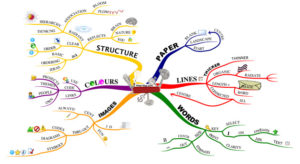“A meeting is an event where the minutes are kept and the hours are lost.” Anonymous

I’ve yet to work with a client that doesn’t have an issue with meetings. Here are some common complaints with suggestions to help move your meetings from being onerous to effortless.
There are too many, and often back to back, meetings in a day
Help people re-energise, re-focus and re-calibrate by starting each meeting with a breathing exercise. I do this with senior execs across diverse industries as well as crews on sites, and it never fails to be appreciated. A simple version is have everyone take some deep breaths for 30 – 60 seconds, while focusing on their breathing only.
Avoid back to back and allow at least a 15 minute gap between meetings in your diary.
They are a time-sucker for already time poor people
Run your meetings standing up (one client of mine runs corridor meetings only) and allocate a time limit that you stick to without fail. Be ruthless about this. One of the greatest gifts you can give someone is more time, so cut your meetings.
The leadership balance isn’t right
If there’s a lack of leadership within a meeting, there will be a lack of clarity around the goals and outcomes. Establish these not only at the start but also in the meeting invite, including who is leading the meeting and their expectations. Make sure everyone is aware of the overall purpose of the meeting to avoid people feeling that it’s a waste of time before it’s even begun, or not even knowing why they’re there in the first place.
Outcomes aren’t met due to lack of focus or follow through
Share the responsibility – everyone there needs to feel responsible for a positive outcome. Mindmap the key points from the meeting as you go through each point on a whiteboard, take a photo of it at the end and send a copy to the people are involved. Track the ratio of outcomes achieved versus not achieved and analyse the effectiveness of your meeting so you can improve the next ones.
People are often invited when they don’t have to actually be there
Gain a new perspective on who really needs to be there by working out the cost of having each person at the meeting. Do a rough calculation of their salary divided by time and it may well help you re-evaluate the necessary attendees.
Running meetings is a skill that needs constant improvement to be as effective as possible. You’d be met with little resistance if you were to suggest, or ask for, ways to improve your meeting culture.
